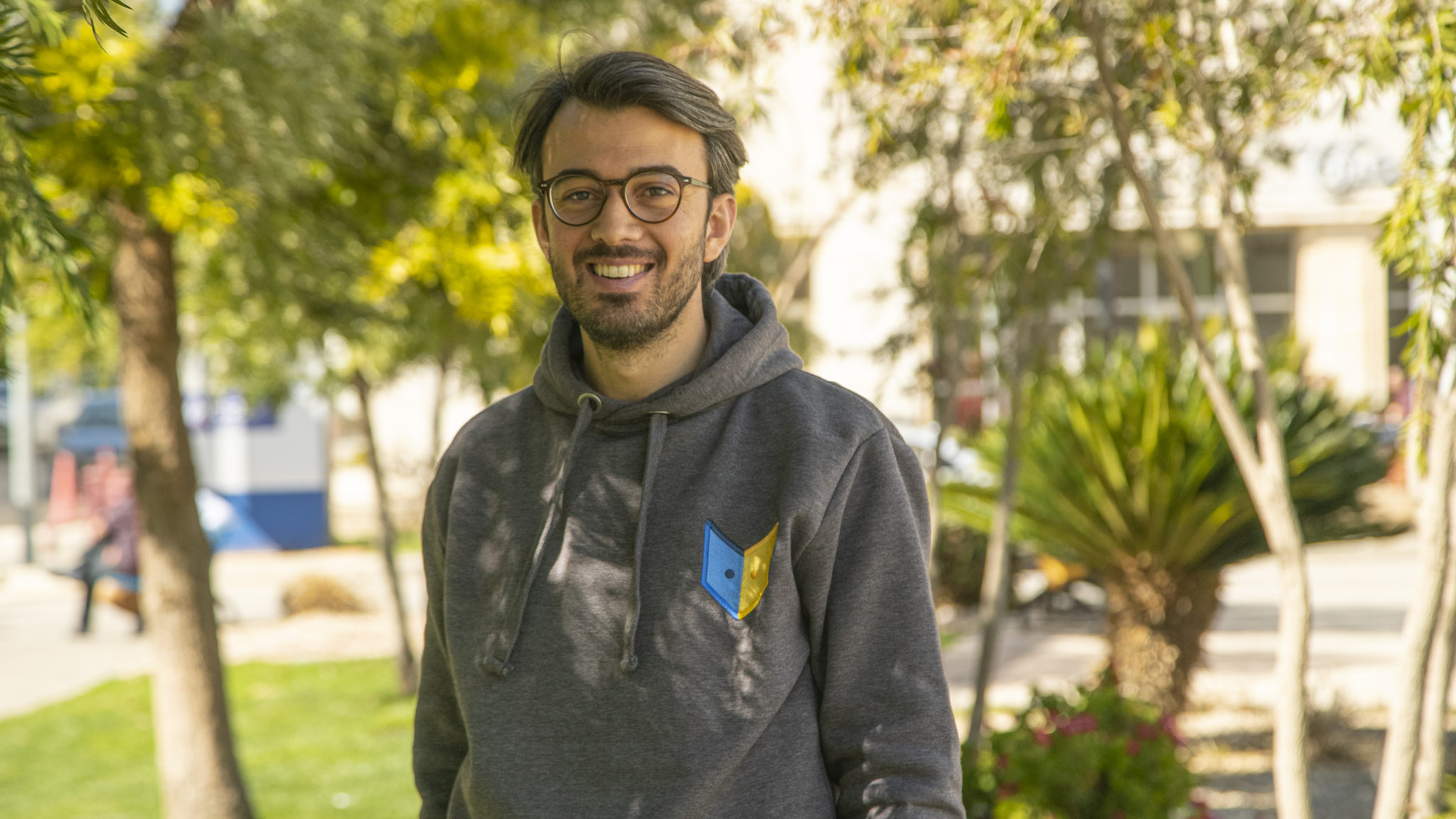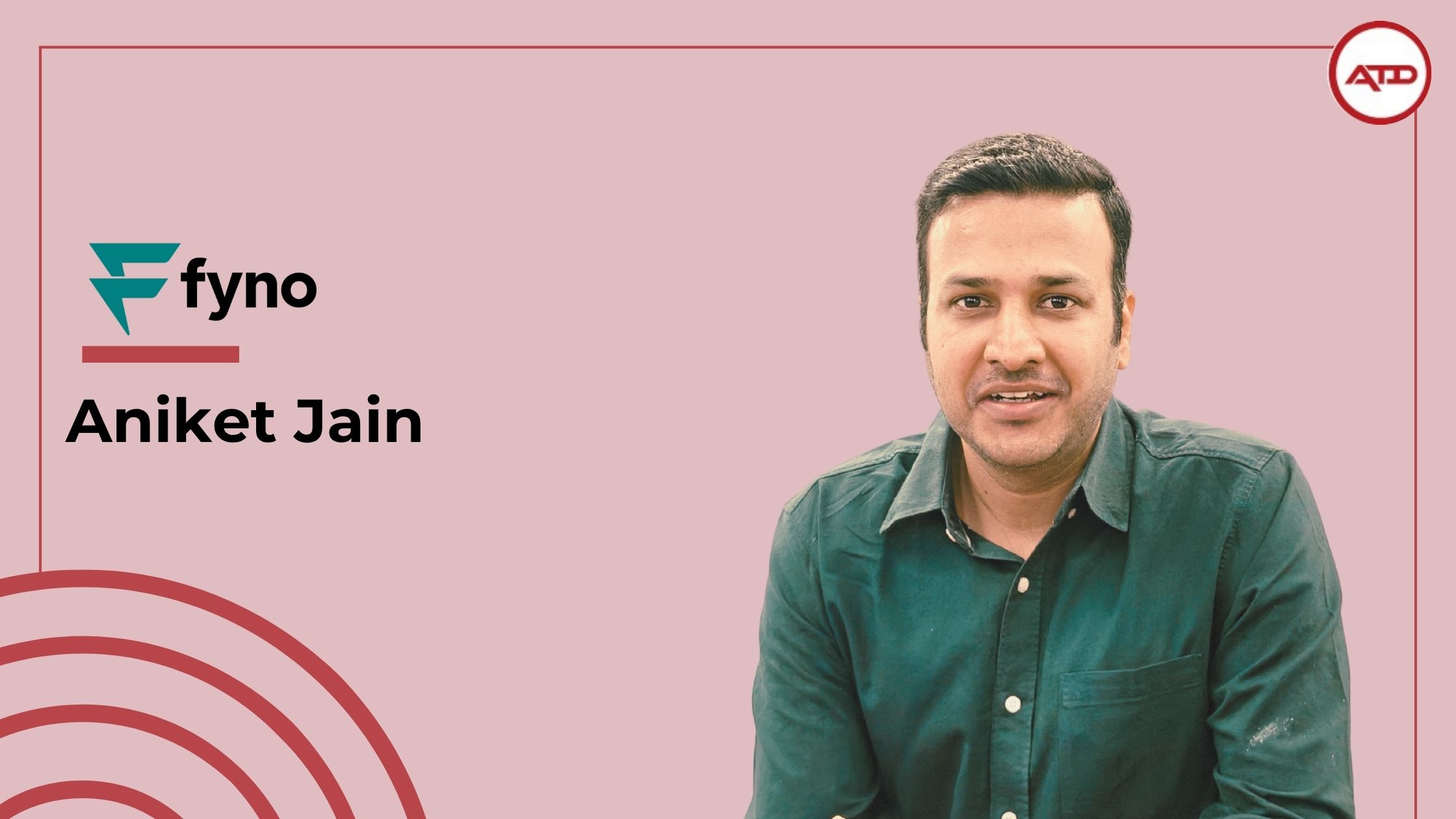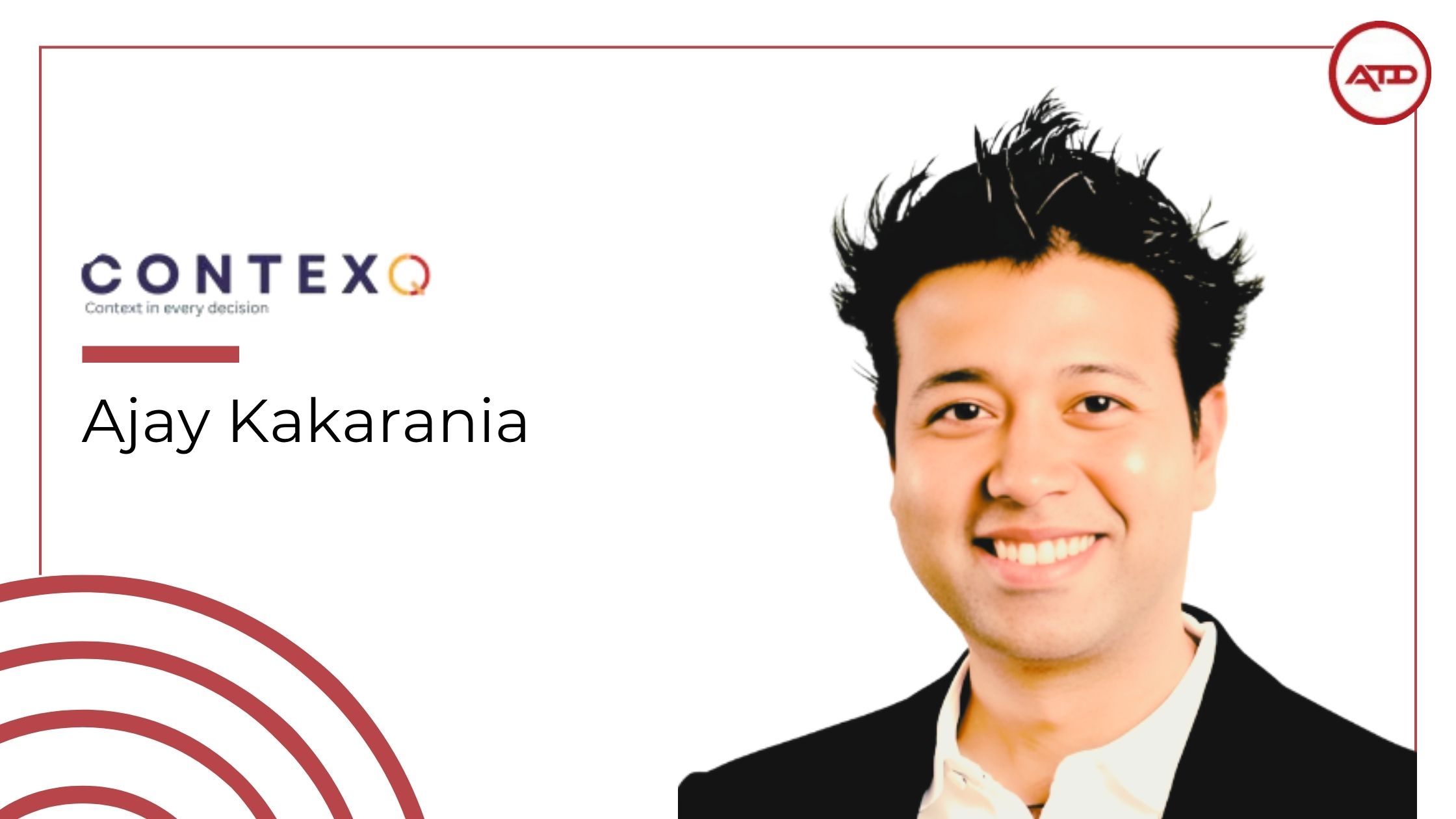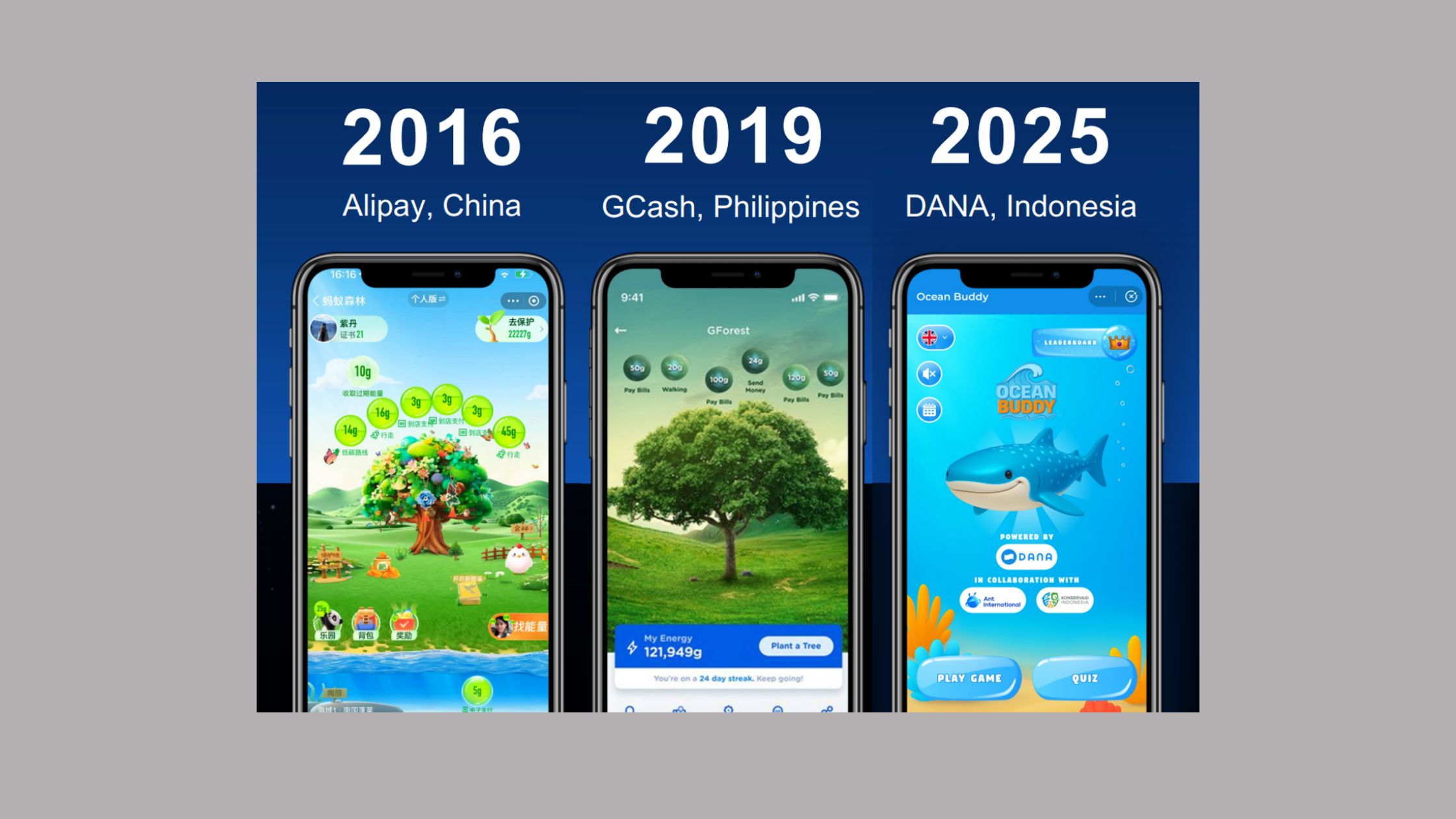AsiaTechDaily – Asia's Leading Tech and Startup Media Platform

Hamdi Tabbaa- Co-Founder And CEO Of Abwaab- Changing The Way We Learn Beyond The Classroom!
Hamdi Tabbaa is the co-founder and CEO of Abwaab. Previously, he was the General Manager at Uber for MENA in the Levant & GCC. Under his leadership, he grew the business in several multiples over 4+ years and worked with the government to pass ridesharing regulations in Jordan, the first of their kind across the region. Before that, he established the specialty grocery store Dukkan, becoming one of the first in Jordan to introduce organized retail at a neighborhood level. He sold the business 6 years in, after hitting USD 15+M in revenues. Hamdi has a master’s degree from the London School of Economics in Real Estate Economics and Finance and a bachelor’s degree from King’s College London in Business Management.
In an exclusive interview with AsiaTechDaily, Hamdi says:
I believe that marketing depends on the stage that the company is at. When a company launches, brand awareness is always the main focus, and grass-root initiatives go a long way in terms of getting the right quality users. As the user base grows and the business matures, marketing goals change, and so do the channels associated with it.
If you have a passion for something, do it. And it doesn’t stop there. Your passion becomes contagious to everyone around you, so use that to build a very positive team culture and atmosphere. This is something I consistently heard from my peers at Uber and have always taken it very well. I can see the result in the culture of our super solid Abwaab team.
Read on to know more about Hamdi Tabbaa and his journey.
Please tell me about your personal background, and what are you working on currently? (* What motivated you to get started with your company?)
Hamdi Tabbaa: I’m the co-founder and CEO of Abwaab, MENA’s latest Edtech startup.
Prior to starting Abwaab, I worked at Uber for nearly 5 years, where I was the general manager for the Levant & GCC. During that period, I saw Uber grow from being a small-sized operation with dozens of drivers in the region to becoming one of the largest tech companies in MENA. Before that, I started my own company, “Dukkan,” in the field of fast-moving consumer goods (FMCG), becoming one of the first in Jordan to introduce organized retail at a neighborhood level. I sold the business 6 years in, after hitting more than USD 15M in revenues.
On an academic front, I hold a master’s degree from the London School of Economics in Real Estate Economics and Finance and a bachelor’s degree from King’s College London in Business Management.
I’ve had a passion for education long before joining Uber, but I had limited tech experience. What motivated me to start Abwaab was the potential impact one can have through technology, which I witnessed firsthand during my time at Uber. At that point, I understood the magnitude of the potential. Given the lack of high-quality education in the region, I am determined to have a significant impact on the generations to come.
What is your current main product, and (If there is any) can you share any product pivot story from founding to the current product?
Hamdi Tabbaa: Our product is an online learning platform for secondary school students in MENA that offers concept-based video lessons, continuous assessment, and performance-tracking features with programs tailored for each market in the region.
When we launched our product in February, we started to roll out content for the Jordanian grade 12 national curriculum (“Tawjihi) with plans to kick off our freemium subscription model at the beginning of April and expand to other grades by September when the new academic year kicks in. With the covid19 outbreak, and schools shutting down in Jordan, we had to do a very quick pivot and ramp up our operations in 48 hours. We ended up extending our free offering as we partnered up with the Jordanian Ministry of Education to launch the distance-learning initiative “Darsak,” which has led to a major expansion and pivoting on our end. We now produce daily content for 28 subjects covering grades 9-12. Our lessons are aired on TV and hosted on the “Darsak” online platform. We hired 17 new teachers, 16 new teaching assistants, opened up two new studios, set up a new content operations center, which also hosts 14 Ministry of Education experts that approve and certify our content before going online and being aired on national TV. We even rented an entire hotel across the street to host the team, ensuring their safety, and allowing us to work non-stop during this critical time. On the tech front, we created a new route in our own product that hosts our daily “Darsak” lesson content, expanded our server capacity to handle a large amount of traffic, introduced a social sign up feature to streamline the user experience and sign-ups, integrated a new video component to handle the high traffic, and integrated with Zendesk to handle the high number of support tickets we receive across different channels.
How much money (funding) have you raised in total so far? When was the recent funding round?
Hamdi Tabbaa: We announced the closing of our USD 2.4M pre-seed round mid-March of this year.
How have you attracted users and grown your company from the start? And Which were your marketing strategies to grow your business?
Hamdi Tabbaa: We launched in February 2020 and started getting strong organic growth immediately. Fortunately, 6 weeks into the launch, we managed to close a deal with the Ministry of Education in Jordan to teach all high-school students between grades 9-12 during the school shutdown. The result was exponential growth on the user side, with our lessons being played on national TV every day and hosted online.
To top it off, we just kicked off a partnership with Google that aims to optimize our growth metrics, unlock the most potential, and make sure we maintain our strong momentum.
Which is the best marketing tool for the growth of your startup, and why?
Hamdi Tabbaa: I believe that marketing depends on the stage that the company is at. When a company launches, brand awareness is always the main focus, and grass-root initiatives go a long way in terms of getting the right quality users. As the user base grows and the business matures, marketing goals change, and so do the channels associated with it.
What do most startups get wrong about marketing in general?
Hamdi Tabbaa: They were not identifying the niche of users that they want to target. For me, it’s very important to select a small niche of users to target in the beginning, make sure they really love the product and then start scaling from there. Spending money on social media marketing without focusing on a specific target group can drain a company out of cash.
What were the internal decision processes in determining when to begin fund-raising, and what were the logistics for this? And how many investors have you met so far, and how did you meet these investors and which channels worked best for you?
Hamdi Tabbaa: I started talking to investors the day I came up with the idea for Abwaab along with my co-founder Hussein who started working on our technology before we decided to kick things off. Raising funds is definitely no easy task, but thankfully we got lucky with very high investor appetite and were even oversubscribed for the round.
In general, I encourage startups to knock on as many doors as possible. We actually started getting a strong investor appetite for further investments, and we’re making sure to keep all the doors open for exploration. Unfortunately, it’s all about the networks and connections, so I’d advise founders to invest some time into that.
What are the biggest challenges you’ve faced and obstacles in the process of fund-raising? If you had to start over, what would you do differently? (Your insight or advice on this would be very helpful for startups)
Hamdi Tabbaa: It was my first-time fund-raising in over 5 years, so it definitely took a lot of my time. A time that I could have used to focus on building the product, engaging with users, and focusing on the team. I would therefore highly recommend that founders organize themselves during a fund-raising round, keep a clean folder that has all the required documents, and have a sheet that tracks every interaction with each investor to stay on top of things.
What are your milestones for the next round? And what are your goals for the future?
Hamdi Tabbaa: We are aiming to grow up to half a million users in Jordan, covering most of the students aged between 14-18, before we move on to our next market, which will most likely be KSA or Egypt.
How do you plan to expand globally?
Hamdi Tabbaa: Our product is catered to each individual country. Therefore we will focus on expanding across the Arabic-speaking countries one by one before looking into other potential markets.
What are the most common mistakes companies make with global marketing?
Hamdi Tabbaa: They are spreading too thin and marketing for the “world,” which can be very tricky and costly in terms of user acquisition. I believe startups need to identify a niche of users in a certain market, make sure there is solid traction, validate product-market fit, and then start growing one step at a time.
How do you handle this COVID-19 outbreak situation for your company’s survival in the future?
Hamdi Tabbaa: The safety of our team is our top priority, especially in an environment where we have to work day and night during these tough times to deliver on the partnership that we closed with the Ministry of Education.
We have taken several safety measures to ensure the safety of the team, including making sure that all team members maintain a high standard of hygiene and offering free covid19 testing for every single team member given the high amount of interaction that takes place at our offices (teachers, teacher assistants, government supervisors, etc.). We have also made sure that all team members who can work remotely stay at home to minimize as much face-to-face interaction as possible.
While COVID-19 brings sad news to humanity, it has actually been a strong opportunity for our business, and a pivotal moment for edtech across the world, with online. Distance learning getting a lot of attention.
What are the most common mistakes founders make when they start a company? (or What should all first-time startup founders know before they start their business?)
Hamdi Tabbaa: The most common mistake is starting a company just for the sake of having your own startup and kicking it off because you like the idea without validating if there’s actually a market for it. This, to me, is the main challenge that any founder needs to overcome before kicking off. On the flip side, many entrepreneurs have good ideas with a clear product-market fit but revert from taking the first big move of starting. If you have a good idea with a good market, go ahead!
What’s the best advice you’ve ever received? And What advice do you have for someone who is interested in doing similar things like yours or in a similar direction?
Hamdi Tabbaa: If you have a passion for something, do it. And it doesn’t stop there. Your passion becomes contagious to everyone around you, so use that to build a very positive team culture and atmosphere. This is something I consistently heard from my peers at Uber and have always taken it very well. I can see the result in the culture of our super solid Abwaab team.
What are the one or two things that you would do differently to improve your life (or what kind of personal habits would you improved?) if you could go back to 10 years ago?
Hamdi Tabbaa: Ten years ago, I didn’t take feedback very well. I was a recent graduate and used to think that I knew everything (the Dunning-Kruger effect chart shows it very well). Reality is that I knew very little, and I learned that the hard way through a series of failures. My advice is to always be open to feedback, learn from every opportunity, and turn every challenge or problem you face into an opportunity that you can learn from, develop and bounce back stronger than ever before.
You can follow Hamdi Tabbaa here.
Are you looking to secure investment for your startup or a keen startup enthusiast, keep an eye on our interview section.
Follow Asia Tech Daily to know about the innovative startups and how they are revolutionizing the ecosystem.



